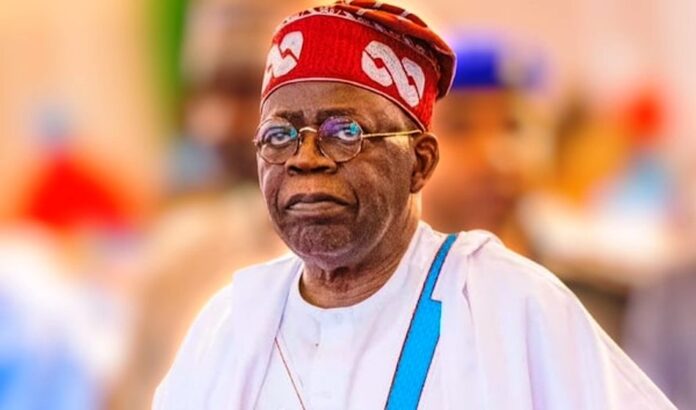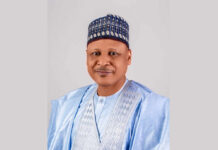By Stanley Nkwocha
Features – Peaceful protest is a powerful tool for driving positive change and promoting a more just and equitable society. The 1999 Constitution (as amended) expressly states: “Every person shall be entitled to assemble freely and associate with other persons, and in particular, he may form or belong to any political party, trade union or any other association for the protection of his interests.”
This is why President Bola Ahmed Tinubu has been rightly adjudged the protester-in-chief because in the three phases of his political life: activist – during his days in NADECO when he joined other pro-democracy activists to fight for the return of democracy; persecuted – as governor of Lagos State when he fought against high-handedness by the government at the centre; and now president – currently restoring a system that will take development and dividends of democracy to the grassroots.
However, the nationwide protest and the kind of violence and wanton destruction that happened in some major cities in the country by underage Nigerians are misdirected and uncalled for. The protests have taken a disturbing turn, exposing a sinister motive of the opposition. What was meant to be a peaceful protest has been hijacked by some individuals who have incited underage Nigerians to embark on violence, looting, and chaos, leaving innocent traders and citizens to suffer the consequences.
Peaceful protest is a constitutional right, enshrined in the Nigerian Constitution to allow citizens to express their grievances and hold their leaders accountable. Although Section 39 (1) also provides for the right to freedom of expression and the press, which includes the right to hold and express opinions, receive and impart ideas and information without interference, it is important to note that these rights are subject to limitations as provided in Section 45 (1) of the Constitution, which allows for restrictions on these rights for the purpose of maintaining public safety, order, and morality.
The type of protest we are witnessing seems to have crossed the line, with heinous economic crimes committed against traders whose shops were looted and lives lost. This is not protest; it is wanton destruction of our nationhood. The calls for foreign intervention and military takeover are unpatriotic and dangerous. Protesters were freely waving a foreign flag, calling for intervention, forgetting that politics can only thrive in a peaceful Nigeria.
Besides, the protest demands are misguided. This is a clear indication that contrary to what well-meaning Nigerians are demanding, a section of the protests are driven by political expediency rather than a genuine desire for reforms. President Tinubu and his deputy, Vice President Kashim Shettima, have only just begun to address the deep-seated problems they inherited. Rather than calling for the reversal of fuel subsidy removal, we should be giving kudos to the Tinubu administration for increased federal allocations.
Moreover, the protests have been marked by a lack of leadership and organization, with different groups and individuals hijacking the demonstrations for their own purposes. This has led to a breakdown of law and order, with security agencies struggling to maintain control. Nigeria’s democracy is under threat from within. The protests are a symptom of a larger problem – a lack of faith in the democratic process and a desire for quick fixes rather than sustained reforms. It is time to redirect our focus towards constructive dialogue.
In a demonstration of uncommon leadership, President Tinubu, in a nationwide broadcast on Sunday, addressed the pressing issues affecting Nigeria, offering a message of hope, unity, and collective effort to build a brighter future. He expressed deep concern over the protests and violence that have resulted in the loss of lives, destruction of public facilities, and looting. He urged protesters to suspend further action and engage in dialogue, emphasizing the need for peaceful resolution of grievances.
The decision to remove fuel subsidies and abolish multiple foreign exchange systems was born out of the need to address economic mismanagement and promote growth. These reforms are necessary to stabilize the economy, attract foreign investment, and create jobs.
Despite the challenges, President Tinubu has recorded several achievements, including increased government revenues, improved productivity, and infrastructure development. In the past, a significant portion of our nation’s revenue, approximately 97%, was allocated toward debt servicing. However, through the diligent efforts of the current administration over the past 13 months, this percentage has been successfully reduced to 68%.
This progress demonstrates the fecundity of his administration’s economic policies. He is committed to youth empowerment through initiatives such as the student loan scheme, Consumer Credit Corporation, and programs to promote digital skills and entrepreneurship. These initiatives aim to equip young Nigerians with the skills and resources needed to succeed in an increasingly competitive global economy.
The President has also put in place measures to support low-income earners, including a national minimum wage increase, housing initiatives, and incentives for farmers to increase food production. These measures demonstrate his administration’s commitment to reducing poverty and inequality.
He has appealed for calm, unity, and collective effort to build a brighter future, warning against allowing violence and destruction to tear the nation apart.
The idea is that Nigeria’s diversity is its strength; together, Nigerians can overcome any challenge, especially with a leader like Tinubu who is committed to democratic principles. He has cautioned against unconstitutional agendas that could undermine Nigeria’s democratic journey, emphasizing the importance of respecting the rule of law, protecting human rights, and promoting transparency and accountability.
As the country moves forward, Nigerians need to come together, engage in constructive dialogue, and work towards building a prosperous and stable nation. We can’t continue to approbate and reprobate and expect sustainable development. In just two days, the protests have inflicted significant economic losses, with estimates suggesting over N500 billion (approximately $1.1 billion) lost in just one day. Another estimate puts the loss at N700 billion (approximately $1.5 billion) in the first two days of the protests.
The protests have also led to the disruption of business activities, with many markets and shops closed. This has resulted in significant losses for traders and businesses. The imposition of curfews in several states and the general atmosphere of instability have further exacerbated the economic costs
There have been reports of damage to infrastructure, including the burning of a Digital Innovation Park in Kano, which is estimated to have cost millions of Naira. The protests have dealt a significant blow to Nigeria’s already fragile economy, with the losses expected to have severe consequences for the country and its citizens.
Can we continue this way? If not, the ball is in our court. As Nigerians, we must not be swayed by misguided sponsored protests. Instead, let’s work towards building a more peaceful and prosperous nation for all. This requires patience, understanding, and a commitment to democratic principles. Let us reject the politics of self-destruction and embrace the politics of engagement and dialogue.
Nkwocha is Senior Special Assistant to The President on Media & Communications (Office of The Vice President).





